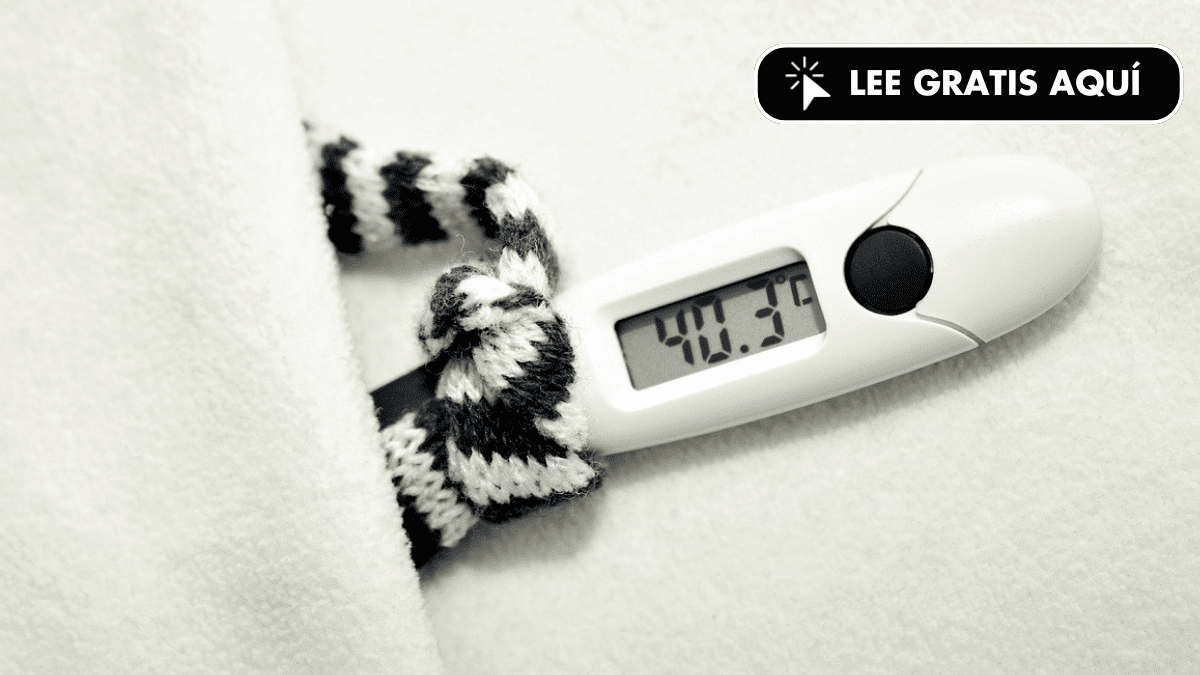The first few weeks of the year have been fraught with viruses. Hospitals in Spain are facing overload due to an increase in cases of the triple epidemic of the common cold, COVID-19 and influenza A. Severe symptoms result in thousands of people requiring medical attention, especially in the last hours of the day.
Why do symptoms worsen at night?
Colds, flu, and COVID-19 are all caused by viruses. Although the duration and symptoms of each disorder vary, patients with these disorders agree that symptoms worsen at night.
Behind this common feeling, there are biological and circadian factors that explain why coughing, congestion, and fever worsen when the sun goes down.
in a dream, body temperature tends to drop, aggravating symptoms such as nasal congestion, sore throat, and cough. Apart from, reduced blood circulationhindering the efficient transport of nutrients and energy needed to fight infection.
Your posture while lying down also plays an important role because Gravity causes mucus to accumulate in the airwaysexacerbating nasal congestion and coughing.
at the same time, Breathing at night can cause dry mouth and mucous membrane irritationmaking cold symptoms more severe.
Furthermore, the hypothesis is supported: The body’s immune response may change during sleep. Immune cells responsible for fighting infection tend to be more active during the day, helping to control cold symptoms.
At night, however, these cells may become less active, potentially facilitating further spread of the virus.
How to relieve nighttime symptoms
When combating nighttime symptoms of the flu, cold, and COVID-19, a few simple steps can improve the quality of your rest. Keep the room well ventilated and at a comfortable temperature It helps create a more supportive environment to deal with respiratory discomfort. also, Use a humidifier It is the key to increasing air humidity and relieving respiratory dryness.
In the field of remedial measures, Turn to over-the-counter medications, Decongestants, antihistamines, or pain relievers, for example, can effectively relieve symptoms and promote more restful sleep. Continuous hydrationBy taking in enough fluids, you can help keep your mucous membranes in optimal condition and relieve throat irritation.
Apart from, Don’t underestimate the importance of getting enough rest, it’s vital. Prioritizing uninterrupted, restful sleep can go a long way toward recovery.
The difference between influenza, COVID-19 and the common cold
he common cold, Caused by a variety of viruses, it usually presents with nasal congestion, runny nose, sore throat, coughing, and sneezing. Unlike influenza and COVID-19, It does not usually cause fever on a regular basis. Cold symptoms appear gradually and typically Its duration does not exceed 10 days.
this influenzaAlso caused by a virus, it is characterized by symptoms such as fever, fatigue, headache, cough, and chills. As opposed to the gradual progression of a cold, these symptoms appear suddenly and may also include a stuffy or runny nose. Generally speaking, Its duration ranges from 7 to 14 days.
Refers Coronavirus, usually presents with fever, cough, difficulty breathing, sore throat, fatigue, and in some cases diarrhea. A typical symptom is loss of smell. Symptoms can develop gradually and vary in intensity, from mild to more severe cases such as pneumonia or severe acute respiratory syndrome (SARS).



